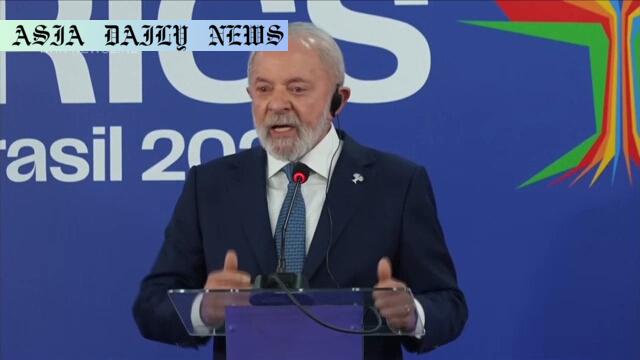Tariff: Brazil plans retaliation after Trump’s announcement of a significant 50-percent tariff imposed on Brazilian imports.
- US President Donald Trump announced a sudden 50-percent tariff on Brazilian imports, effective August 1.
- Brazilian President Lula promised strong retaliation, aligning with national laws to counter unilateral actions.
- Trump criticized the trial of former Brazilian President Bolsonaro, applauding him as a global leader facing legal scrutiny.
- Brazil disputed claims of trade deficits, asserting positive statistics showing a consistent surplus over 15 years.

A Shocking Tariff Announcement
In a dramatic move that has sent ripples across international trade, US President Donald Trump has imposed a 50-percent tariff on Brazilian imports. This decision, disclosed in an open letter shared on social media, marks a spike from the previously announced 10-percent rate in April and targets Brazil with the highest tariff among eight nations affected. The announcement comes during a tense period of diplomatic negotiations, escalating what already appeared to be friction between the two countries.
Brazil’s Assertive Stance
The response from Brazil was swift and firm. President Luiz Inacio Lula da Silva made it clear that his government opposes any unilateral measures that undermine international trade norms. Quoting Brazilian law, Lula underlined his administration’s resolve to respond to the tariff hike with countermeasures. Moreover, he insisted that Brazil would not surrender its sovereign right to defend its economic interests.
The Bolsonaro Conundrum
In addition to the tariff, Trump used the platform to support former Brazilian President Jair Bolsonaro, famously known as the ‘Trump of the Tropics.’ Bolsonaro faces legal proceedings amidst accusations of attempting to stage a coup to overturn election results. Lula dismissed Trump’s criticism of the trial, emphasizing that Bolsonaro’s case falls under the exclusive jurisdiction of Brazil’s independent judiciary system. This controversy adds another layer to an already strained relationship between the two administrations.
The Trade Deficit Debate
In his letter, Trump accused Brazil of contributing to unsustainable US trade deficits. However, Lula responded with statistics contradicting these claims, highlighting a US$410 billion trade surplus for the US with Brazil over the past 15 years, based on official US government data. Lula’s rebuttal underscores the complexities of trade relations often affected by politics rather than hard facts.
Global Implications of the Conflict
This escalating trade dispute between the world’s largest economy and one of South America’s economic giants could have far-reaching consequences. Both nations stand to lose economically while global reactions to unilateral restrictive trade policies may also sour. The international community watches closely as Brazil and the US navigate this challenging chapter in their trade relationship.



Commentary
The Dangerous Precedent of Unilateral Tariffs
The imposition of a sudden and steep tariff by the United States on Brazilian imports is alarming for several reasons. Not only does it destabilize economic relations between two significant global players, but it also sets a worrying precedent where major economies enforce unilateral measures over negotiation or diplomacy. Tariffs of this magnitude disrupt supply chains, inflate costs, and could discourage mutual trade, making it a lose-lose for both nations economically.
The Growing Rift Between Lula and Trump
At the heart of this political-economic drama lies the stark contrast between Presidents Lula and Trump. Lula’s stance on upholding Brazilian sovereignty and supporting judicial independence is a firm rebuttal to Trump’s overtly political commentary on Bolsonaro’s ongoing trial. This suggests not just a trade war but a deeper ideological clash with potential ramifications on their countries’ diplomatic relationship moving forward.
The Role of Data and Perception in Trade Disputes
Trump’s framing of Brazil as responsible for trade deficits is contradicted by the very data provided by his government. Lula’s ability to substantiate his claims with clear statistics reflects a need for transparency in such debates. This also underlines how perceptions can heavily influence trade decisions, often sidelining factual accuracy for political rhetoric.
Final Thoughts
As global observers look on, this dispute between Brazil and the United States highlights the precariousness of global trade relationships in the modern era. Economic figures, political ideologies, and national interests collide to create narratives that affect millions outside the decision rooms. While retaliation and escalation might seem unavoidable, one can only hope for eventual negotiations. A resolution rooted in cooperation rather than confrontation will benefit not just these two nations, but the wider global economy as well.